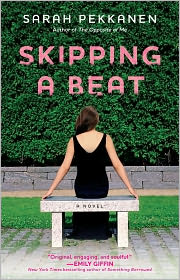Larry D. Sweazy's first western,
The Rattlesnake Season, a Josiah Wolfe, Texas Ranger novel, was released by Berkley Books in 2009. Book #2 in the Josiah Wolfe series,
The Scorpion Trail, followed in 2010. Book #3,
The Badger's Revenge, will be released on April 05, 2011, and Book #4,
The Cougar's Prey, will be released in October, 2011.

Sweazy applied
the Page 69 Test to
The Badger's Revenge and reported the following:
Page 69 of The Badger’s Revenge finds Josiah Wolfe hiding in a barn, after escaping from two bounty hunters. He’s been taken into a town where the sheriff and his men are nothing but outlaws themselves, and Josiah is not sure that he can trust the woman, Billie Webb, whose barn he’d sought refuge in. Whether she turns Josiah in or not determines whether he will live or die. But Billie may have her own reasons for keeping Josiah safe. She needs help. Her husband is dead, recently killed by another outlaw, and she’s nine months pregnant, about to give birth.
Page 69 excerpt:
The man was Liam O’Reilly, there was no mistaking that. His hat had fallen back off his head, held by the string around his neck. His thick red hair glistened, soaked with rain but still bright as a redbird strutting around in full breeding feathers, trying to entice a female. O’Reilly’s hair was as tousled as the girl’s, and he looked like he’d been riding all night. His clothes were muddy, and the other feature that stuck out to Josiah from his position, hiding in the hay mound—where the girl had instructed him to go just moments before the riders arrived—was that O’Reilly didn’t wear a badge now, while the other two men did.
“Morning, Billie,” the man in the lead said.
He sat comfortably on a black stallion. The man was wearing a tall black Stetson, a black vest with a five-point star pinned to it, muddy riding boots, and a slicker opened up over his shoulders.
“What can I do for you, Sheriff?”
“We’re looking for a man.”
“Figured as much. That Ranger?”
Josiah stiffened. He still wasn’t sure if he could trust the girl—Billie, he figured, since that was what the sheriff had called her. But she’d told him to hide, and hide he had. He had no choice. Running was out of the question.
Watch
the trailer for The Badger’s Revenge, and learn more about the book and author at
Larry D. Sweazy's website and
blog.
Check out
the complete list of books in the Page 69 Test Series.
--Marshal Zeringue
 She applied the Page 69 Test to her new novel, Becoming George Sand, and reported the following:
She applied the Page 69 Test to her new novel, Becoming George Sand, and reported the following:














